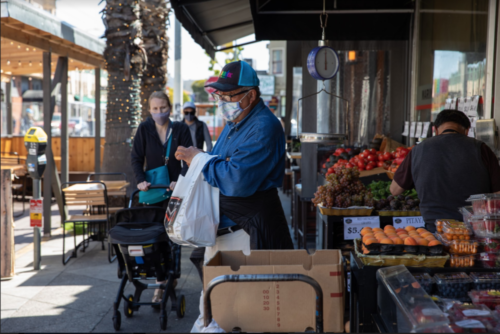Lessons from the Pandemic: It’s Time to Rethink Social Policy
Casey Michie
The rollout of vaccinations is slowly bringing the COVID-19 pandemic to an end, and as we make our march towards a return to normalcy, we must not forget the shortfalls of U.S. social policy that the pandemic has made glaringly obvious. Similar to the Great Depression in the 1930s, which catalyzed policymakers into action with the eventual signing of the Social Security Act, lawmakers must once again create and reform legislation to better protect the citizens of America.
According to research by the Center on Budget and Policy Priorities, unemployment rates during the pandemic hit a peak of 14.7%, with one in five Americans reporting difficulty paying rent. Data from the Bureau of Labor Statistics finds that of those that have applied for unemployment insurance, less than 60% have actually received any benefits. While the unemployment figures are an inherent cost of shuttering business to slow the spread of the pandemic, the failure of getting benefits to people in need is a clear sign that updating social security for the modern era is necessary.

Further compounding the woes felt by the unemployed, an estimated 12 million Americans lost health coverage along with their jobs. While healthcare has been a controversial topic in Washington, the fact that millions of Americans have lost access to healthcare amidst a pandemic is a dire issue in need of address. Lawmakers must learn from the failures of the current system and prioritize health reform to ensure affordable healthcare as a right to all American citizens.
Critics will often point to a common counter-argument, namely the government cost of funding new social programs. While fiscal responsibility is an important consideration, improved social policy does not necessarily equate to higher costs. A research study published in PLOS Medicine Journal found that all 22 single-payer health systems that were analyzed in their research resulted in long-term net savings versus the current health system in the U.S.. Similarly, while unemployment insurance is a burden to the budget in the short term, the Center on Budget and Policy Priorities notes that allowing people to fall further into poverty would inflict a greater toll on the economy in the long run.
And while cost is a significant factor to consider, perhaps a more important question to ask is a moral one: Shouldn’t the U.S., the wealthiest country on Earth, allocate resources to provide all of its citizens with security and a comfortable standard of living? If the answer is yes, then we should strive to enact legislation regardless of the number of people facing adversity.

Pandemic or not, the truth is disaster strikes every day. Often the misfortunes of fate happen to a stranger we’ve never met; sometimes to an acquaintance we barely know. Other times it creeps into our close circle, affecting friends, family, and even ourselves. We must internalize the idea that even if we are not personally affected, we are not absolved of a moral obligation to shepherd in policy that protects everyone. In doing so, in caring for our neighbors, we can weather the disasters the future will inevitably bring as a united people, and create a prosperous society for all.
